Browsing News Entries
Catholic Church provides pastoral care to victims of tragic train accident in Spain
Posted on 01/20/2026 19:07 PM (EWTN News - World Catholic News)
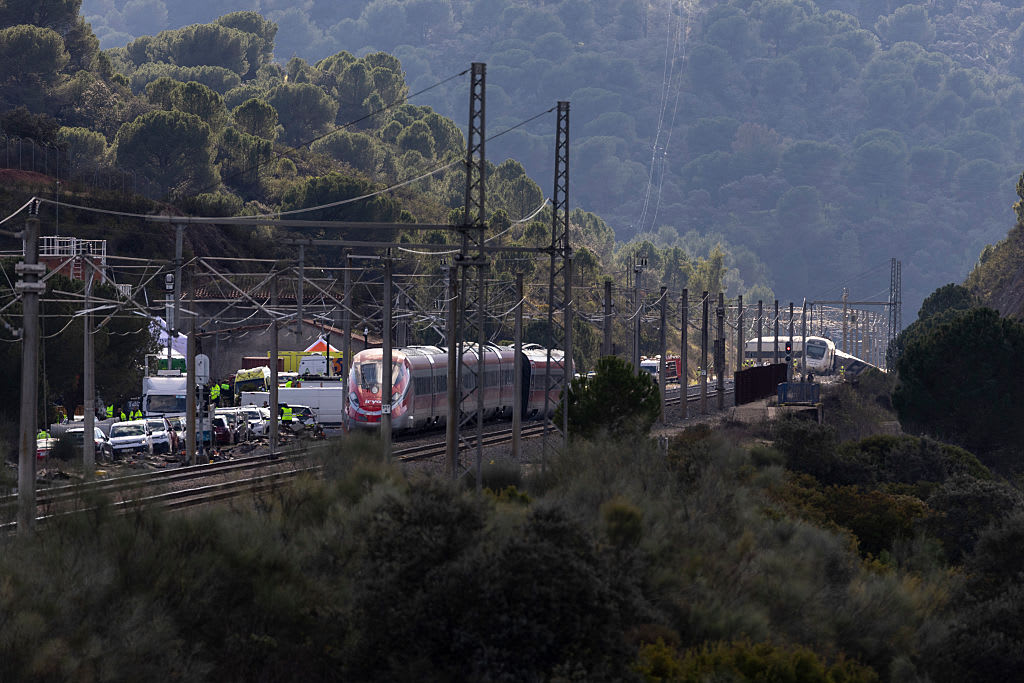 The Catholic Church in the Córdoba province of Spain is helping victims and their families after a high-speed train accident on Jan. 18, 2026, left at least 42 people dead and dozens injured. | Credit: Pablo Blazquez Dominguez/Getty Images
The Catholic Church in the Córdoba province of Spain is helping victims and their families after a high-speed train accident on Jan. 18, 2026, left at least 42 people dead and dozens injured. | Credit: Pablo Blazquez Dominguez/Getty Images
, Jan 20, 2026 / 17:07 pm (CNA).
After a tragic train wreck in Spain, the local Catholic Church is offering pastoral care to the victims and their families.
100 years since the Cristero War in Mexico: What you should know
Posted on 01/20/2026 17:37 PM (EWTN News - Americas Catholic News)
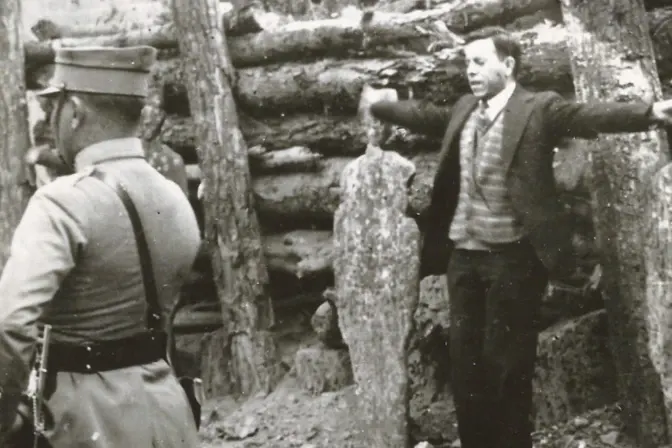 Blessed Father Miguel Agustín Pro, a martyr during the Cristero War in Mexico, with his arms outstretched in the form of a cross before being executed by firing squad on Nov. 23, 1927. | Credit: Unknown, public domain, via Wikipedia
Blessed Father Miguel Agustín Pro, a martyr during the Cristero War in Mexico, with his arms outstretched in the form of a cross before being executed by firing squad on Nov. 23, 1927. | Credit: Unknown, public domain, via Wikipedia
, Jan 20, 2026 / 15:37 pm (CNA).
It has been 100 years since the beginning of the Cristero War, an armed, popular uprising against religious persecution by the federal government in Mexico that left a legacy of martyrs.
Everyone can be a good Samaritan, pope says in message for world's sick
Posted on 01/20/2026 06:30 AM (USCCB News Releases)
VATICAN CITY (CNS) -- People of faith and goodwill need to take time to acknowledge the needs and suffering of those around them and be moved by love and compassion to offer others concrete help, Pope Leo XIV said.
To love one's neighbor -- whom Jesus identifies as anyone who has need of us -- is within everyone's reach, he said in his message for the 34th World Day of the Sick, observed by the church Feb. 11, the feast of Our Lady of Lourdes.
"The pain that moves us to compassion is not the pain of a stranger; it is the pain of a member of our own body, to whom Christ, our head, commands us attend, for the good of all," the pope wrote in the message released Jan. 20.
The theme chosen for the 2026 observance is inspired by the parable of the good Samaritan and Pope Francis' encyclical on human fraternity, "Fratelli Tutti."
Titled, "The compassion of the Samaritan: Loving by bearing the pain of the other," the message focuses on the importance of: encountering and listening to others; being moved by compassion; and loving God through concrete action in solidarity with others.
While traditionally addressed to Catholic health care and pastoral workers, this year's message is offered to everyone, Cardinal Michael Czerny, prefect of the Dicastery for Promoting Integral Human Development, said at a Vatican news conference to present the message Jan. 20.
The message is offered to everyone because "we're one body, one humanity of brothers and sisters, and when someone's sick and suffering, all the other categories -- which tend to divide -- fade away into insignificance," the cardinal said.
Asked to comment about how people in the United States should best respond when witnessing violence toward immigrants, Cardinal Czerny said, "I don't know what to say about the larger picture," but he said it would be helpful to focus on "the underview" or what should or is happening on the ground.
"There are many situations in which the individual Christian, the individual citizen, can extend their hand or lend their support. And that's extremely important," he said. "I suppose we could all hope that those many gestures, many Samaritan gestures, can also translate into better politics."
The Catholic "struggle for justice," he told Catholic News Service, gets "its real depth and its real meaning" from daily lived experience helping real people.
Advocacy work, for example, should "evolve out of real experience," he said. "When, let's say, your visits to the sick reveal, for example, the injustice of inaccessibility to health care, well then you take it up as an issue, but on the basis of your lived -- and indeed pastoral and Christian -- experience."
The good Samaritan shows that "we are all in a position to respond" to anyone in need, he said. "And the mystery, which you can discover whether you are a Christian or not, is that by responding, in a sense, your own suffering is also addressed."
"Since the major suffering for so many today, young and not so young, is loneliness and hopelessness, by worrying about it less and reaching out to someone who needs you, you will discover that there's more life than you imagined," he added.
In his message, Pope Leo said, "To serve one’s neighbor is to love God through deeds."
In fact, the "true meaning of loving ourselves," he wrote, involves "setting aside any attempt to base our self-esteem or sense of dignity on worldly stereotypes -- such as success, career, status or family background -- and recovering our proper place before God and neighbor."
"I genuinely hope that our Christian lifestyle will always reflect this fraternal, 'Samaritan' spirit -- one that is welcoming, courageous, committed and supportive, rooted in our union with God and our faith in Jesus Christ," Pope Leo wrote.
"Enkindled by this divine love, we will surely be able to give of ourselves for the good of all who suffer, especially our brothers and sisters who are sick, elderly or afflicted," he wrote.
Catholic Church in Mexico convokes National Dialogue for Peace
Posted on 01/19/2026 09:00 AM (EWTN News - Americas Catholic News)
 Shrine of Our Lady of Guadalupe in Mexico City, Mexico. | Credit: Eduardo Berdejo/ACI Prensa
Shrine of Our Lady of Guadalupe in Mexico City, Mexico. | Credit: Eduardo Berdejo/ACI Prensa
, Jan 19, 2026 / 07:00 am (CNA).
To address chronic violence in the country, on Jan. 30 the Mexican Bishops’ Conference, along with other sponsors, will be holding a National Dialogue for Peace.
Pope Leo XIV urges prayers for peace in Democratic Republic of the Congo
Posted on 01/18/2026 11:44 AM (EWTN News - World Catholic News)
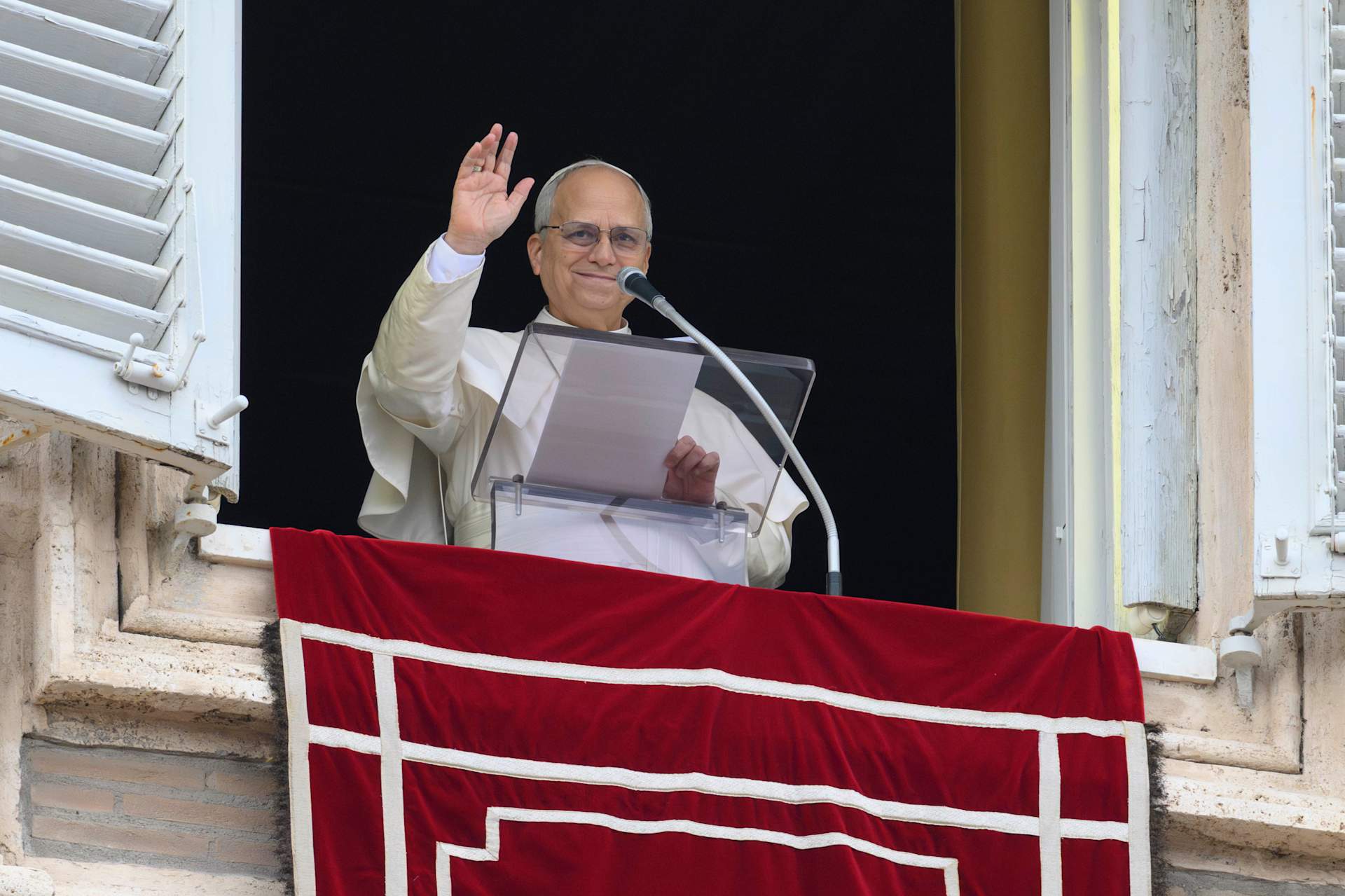 Pope Leo XIV waves to crowds in St. Peter's Square after praying the Angelus on Jan. 18, 2026. | Credit: Vatican Media
Pope Leo XIV waves to crowds in St. Peter's Square after praying the Angelus on Jan. 18, 2026. | Credit: Vatican Media
, Jan 18, 2026 / 09:44 am (CNA).
The pope marked the start of the Week of Prayer for Christian Unity by asking for prayers for those suffering from violence in the African nation.
As war and division spread, Europe’s churches renew call for prayer and unity
Posted on 01/17/2026 09:00 AM (EWTN News - World Catholic News)
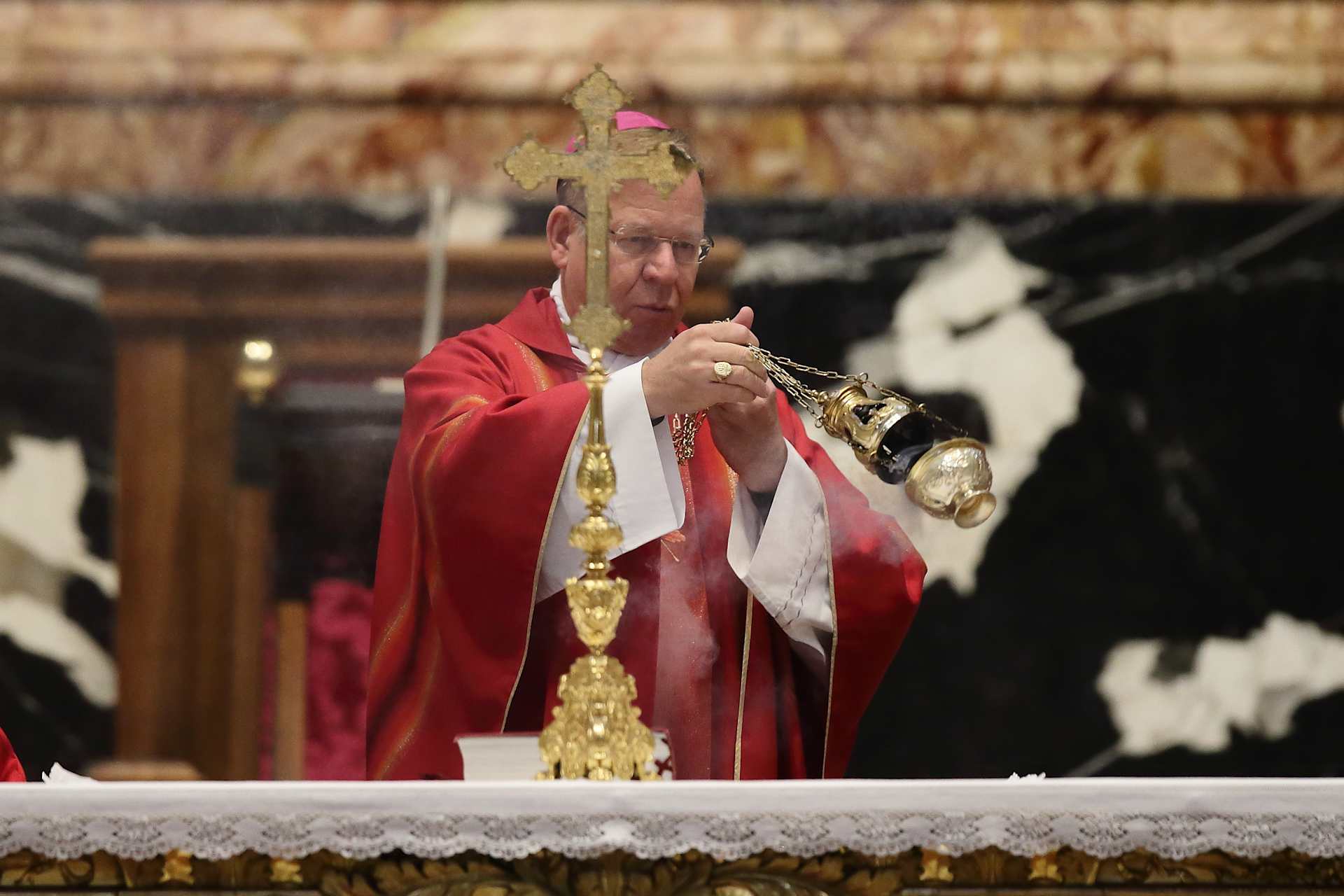 Archbishop Gintaras Grušas of Vilnius, Lithuania, offers Mass on the feast of St. Luke for the Synod on Synodality delegates in St. Peter’s Basilica on Oct. 18, 2023. | Credit: Evandro Inetti/EWTN News/Vatican Pool
Archbishop Gintaras Grušas of Vilnius, Lithuania, offers Mass on the feast of St. Luke for the Synod on Synodality delegates in St. Peter’s Basilica on Oct. 18, 2023. | Credit: Evandro Inetti/EWTN News/Vatican Pool
, Jan 17, 2026 / 07:00 am (CNA).
In a letter addressed to Catholic bishops across the continent, Archbishop Gintaras Grušas of Vilnius, Lithuania, linked this call to the recent updating of the Charta Oecumenica.
Dutch conservative activist and Catholic convert barred from entering the UK
Posted on 01/16/2026 19:10 PM (EWTN News - World Catholic News)
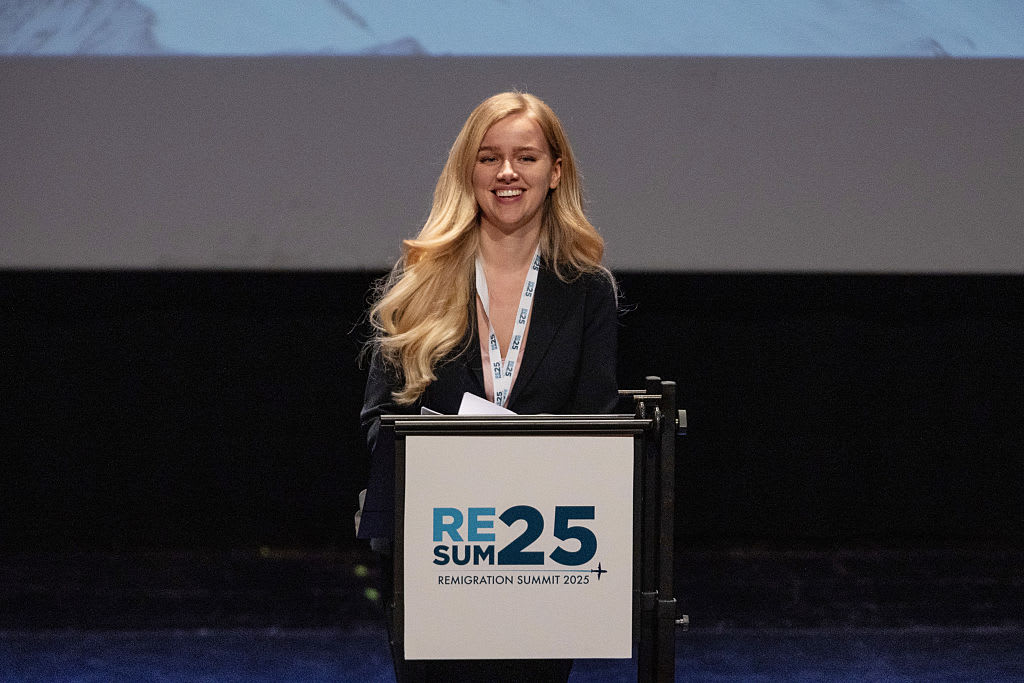 Dutch conservative political commentator and activist Eva Vlaardingerbroek delivers a speech during the first “Remigration Summit” at Teatro Condominio on May 17, 2025, in Gallarate, Italy. She was recently barred by the U.K. government from entering the U.K., deemed “not conducive to the public good.” | Credit: Emanuele Cremaschi/Getty Images)
Dutch conservative political commentator and activist Eva Vlaardingerbroek delivers a speech during the first “Remigration Summit” at Teatro Condominio on May 17, 2025, in Gallarate, Italy. She was recently barred by the U.K. government from entering the U.K., deemed “not conducive to the public good.” | Credit: Emanuele Cremaschi/Getty Images)
, Jan 16, 2026 / 17:10 pm (CNA).
Here is a roundup of Catholic world news from the past week that you might have missed.
Christian symbols in public buildings on trial before European Court of Human Rights
Posted on 01/16/2026 16:05 PM (EWTN News - World Catholic News)
 A case that seeks to remove Christian symbols, including icons and religious artwork, from public buildings in Greece began when two atheists asked for the removal of Christian icons displayed in Greek courtrooms. | Credit: Courtesy of ADF International
A case that seeks to remove Christian symbols, including icons and religious artwork, from public buildings in Greece began when two atheists asked for the removal of Christian icons displayed in Greek courtrooms. | Credit: Courtesy of ADF International
, Jan 16, 2026 / 14:05 pm (CNA).
ADF International goes to court to defend the right to display Christian symbols in Greece’s public buildings.
French bishops condemn euthanasia bill ahead of Senate debate
Posted on 01/16/2026 13:00 PM (EWTN News - World Catholic News)
 The French Senate, the upper house of the French Parliament. | Credit: Jacques Paquier (CC BY 2.0)
The French Senate, the upper house of the French Parliament. | Credit: Jacques Paquier (CC BY 2.0)
, Jan 16, 2026 / 11:00 am (CNA).
The bill criminalizes “obstructing aid-in-dying” — mirroring abortion penalties — with up to two years in prison and a 30,000-euro ($35,000) fine for anyone who dissuades patients from euthanasia.
Italian diocese to award $58K to international ‘economy of fraternity’ prize winners
Posted on 01/16/2026 11:26 AM (EWTN News - World Catholic News)
 Monsignor Anthony J. Figueiredo and Bishop Mylo Vergara of Pasig, Philippines, bless the facility of the 2022 “Economy of Fraternity” prize recipient, the Ecocharcoal Briquettes Project in the Diocese of Pasig, on Dec. 3, 2025. | Courtesy of Monsignor Anthony J. Figueiredo
Monsignor Anthony J. Figueiredo and Bishop Mylo Vergara of Pasig, Philippines, bless the facility of the 2022 “Economy of Fraternity” prize recipient, the Ecocharcoal Briquettes Project in the Diocese of Pasig, on Dec. 3, 2025. | Courtesy of Monsignor Anthony J. Figueiredo
, Jan 16, 2026 / 09:26 am (CNA).
The former archbishop of Assisi, Domenico Sorrentino, instituted the award in 2020 on the day of St. Carlo Acutis’ Oct. 10 beatification.
